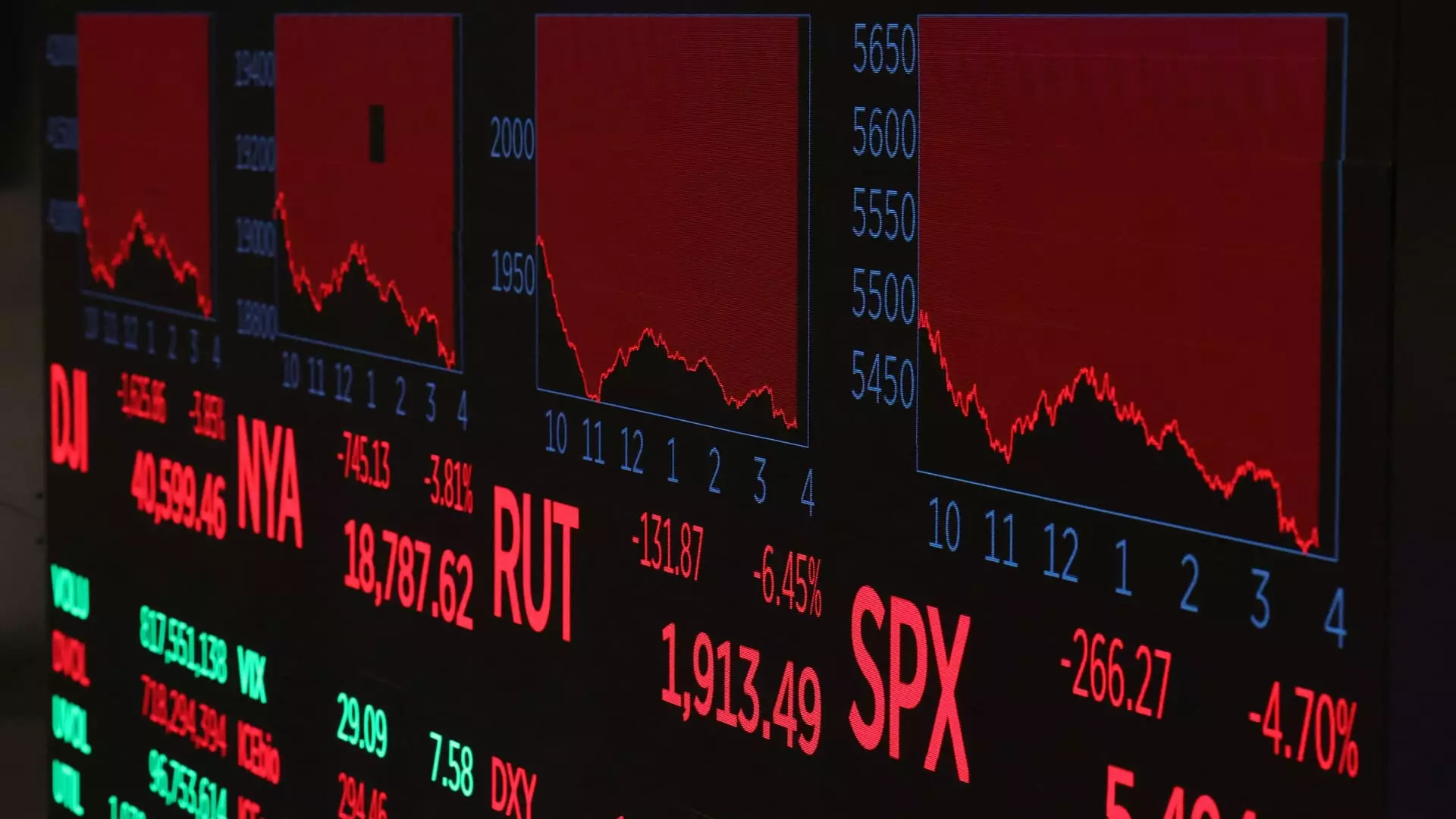In an era marked by political uncertainty and economic unpredictability, everyday investors are defying the prevailing pessimism of Wall Street. Amid the shifting tides of President Trump’s controversial tariff announcements and the subsequent market volatility, a surprising trend has emerged. Retail investors, often dismissed as inexperienced or timid, are boldly stepping into the storm, viewing declines as golden opportunities rather than catastrophic failures. This response reveals a noteworthy shift in the mindset of the average trader, who is increasingly inclined to embrace risk as a path to potential gains.
Unlike institutional investors, who often retreat at the first sign of trouble, retail traders are taking advantage of market dips. Rachel Hazit, a 32-year-old marketer from Philadelphia, exemplifies this sentiment. Instead of panicking, she saw the recent market drop as a sale—a chance to acquire stock at discounted prices. This perspective challenges the long-held notion that only seasoned professionals can navigate turbulent waters effectively. By investing thousands into index funds like the Vanguard S&P 500 ETF and the Invesco Nasdaq 100 ETF when the market dropped, Hazit highlights the growing audacity of the retail investor.
“Buying the Dip”: A Strategy Rooted in Historical Success
The financial principle of “buying the dip” has gained traction among retail investors. This age-old strategy—purchasing stocks during declines—draws from a simple yet powerful logic: if a stock or a market has consistently recovered and provided positive returns, then there’s every reason to believe it will do so again. The recent data from Vanda Research serves as a stark affirmation of this mentality. Even as the S&P 500 faced substantial declines, retail investors injected over $8 billion back into the stock market within just a few days. This influx shattered previous records, illustrating the boldness and confidence of smaller, self-directed traders.
Some analysts argue that the current environment of market volatility presents an appealing backdrop for bold investment moves. The ongoing fear of rising inflation, coupled with tariff-related uncertainties, could indeed deter some investors from jumping headfirst into the market. However, many retail investors seem undeterred. They resonate with historical trends and the proven success of long-term investing perspectives. The message that “millions are made during downturns” is echoing throughout investment communities, encouraging a diverse demographic to participate in stock trading.
The Role of Educational Platforms in Empowering Retail Traders
The rise of educational platforms and influencers in the investment space has undoubtedly made a difference in shaping the investment behavior of retail traders. Many influencers focus on teaching underserved communities how to navigate stocks and manage finances effectively. This is critical in a climate where traditional financial education may leave some behind. Individuals like Tori Dunlap have leveraged social media to inspire others to invest by presenting market downturns as unique opportunities rather than dire warnings.
This empowerment has created a culture of participation. Gone are the days when investing was an exclusive realm held by a select few. Now, individuals from various socioeconomic backgrounds are increasingly engaging with the stock market. The age of financial democratization is upon us, allowing more people to claim a piece of the economic pie, irrespective of their starting position.
Engineering Risks: Is the Retail Investor In Over Their Heads?
However, this trend of robust retail investment should be viewed with careful scrutiny. The willingness of everyday investors to significantly raise their exposure during turbulent times exposes them to not only unique opportunities but also considerable risks. Despite data indicating strong inflows into major ETFs, the volatility measures, such as the CBOE Volatility Index, are also sending warning signals. The question arises: are retail investors fully aware of the seas they are navigating?
The realm of the stock market is fraught with unpredictability. While the odds have favored a return to higher valuations historically, the possibility of a more prolonged downturn is also realistic. Market conditions can change rapidly, and the enthusiasm observed among retail investors could quickly shift to despair should economic headwinds persist. This predicament is particularly concerning for those who view the market through a shorter-term lens, as they may not be emotionally or financially equipped to weather prolonged volatility.
Public Sentiment: Aligning Fear with Opportunity
Despite the external pressures, many retail investors like Hazit continue to view the current climate as a breeding ground for opportunity. This juxtaposition of concern regarding tariffs and economic indicators with a steady commitment to investing showcases a fascinating sentiment shift. While there are fears that rising tariffs might eat into consumers’ discretionary spending in the long run, the logic of capitalizing on stock discounts continues to prevail among self-directed investors.
Moreover, the unique nature of retail trading today indicates a substantial evolution in how everyday investors perceive market dynamics. Thus, as the Ted Talks of the investing world continue to proliferate, it is evident that the retail investor is not just a passive participant but rather an integral agent of change within the broader economic landscape.

